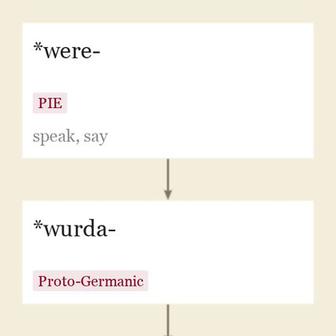afterword n.
1879, from after + word (n.). An English substitute for epilogue.
Entries linking to afterword
Old English æfter "
From c. 1300 as "

Old English word "
The meaning "
It is dangerous to leave written that which is badly written. A chance word, upon paper, may destroy the world. Watch carefully and erase, while the power is still yours, I say to myself, for all that is put down, once it escapes, may rot its way into a thousand minds, the corn become a black smut, and all libraries, of necessity, be burned to the ground as a consequence. [William Carlos Williams, "Paterson"]
early 15c., epiloge, from Old French epilogue (13c.), from Latin epilogus, from Greek epilogos "
updated on December 22, 2016